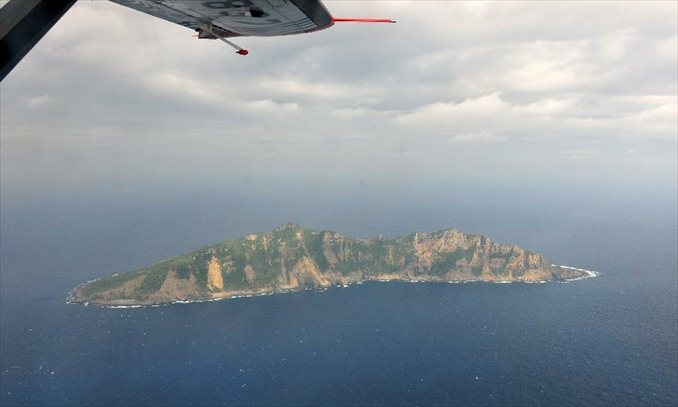China eyes Japan jet moves

China's military said on Thursday that it is closely monitoring and remaining vigilant over the activities of Japan's Air Self-Defense Force, while China's State Oceanic Administration (SOA) has complained that a marine surveillance plane conducting a routine patrol in airspace near the Diaoyu Islands was disturbed by Japan's military jets.
Since 2007, China has been conducting regular air patrols for marine monitoring purposes and protecting sovereignty in the East China Sea, Shi Qingfeng, an SOA spokesman told a press conference on Thursday, adding that the southernmost end of the patrol route is still 150 kilometers away from the Diaoyu Islands.
However, Japan scrambled its military fighter jets to disturb the SOA plane's regular patrol in China's airspace with an aim to "escalate the situation," Shi said.
Shi warned that Tokyo must bear all the consequences of any escalation of tension if it continues to do so.
China sent its marine surveillance plane to fly over the Diaoyu Islands, which both China and Japan claims, for the first time on December 13, and Japan scrambled eight F-15 fighter jets in response.
Over the following days, China conducted at least four air patrol missions over the East China Sea but never came close to the Diaoyu Islands, while Japan also sent its fighter jets to "follow and monitor" the Chinese plane, according to reports in Japanese media.
"The Chinese military is closely monitoring the activities of Japan's Air Self-Defense Force and remains highly vigilant," Yang Yujun, a Chinese defense ministry spokesman, told a press conference on Thursday. "The military maintains close coordination with relevant departments, such as marine surveillance departments, to safeguard China's maritime law enforcement activities and protect the country's territorial integrity and maritime rights."
Japan's National Institute for Defense Studies (NIDS), the policy research arm of the Japanese defense ministry, released an analytical report last week, saying the new Chinese leadership is becoming increasingly aware of the urgency of safeguarding China's maritime security and interests and the coordination between China's military and maritime administrative departments has been significantly strengthened.
It is a "matter of course" for the Chinese military to provide safety protection to Chinese law-enforcement and fishing activities on Chinese territorial seas and other countries are "in no position" to make irresponsible remarks in this regard, Yang said, in an apparent response to the NIDS report.
"We are determined to fulfill our tasks and missions so as to safeguard the country's territorial integrity and maritime rights," Yang said.
Yang Yi, the former head of the Institute for Strategic Studies at the PLA National Defense University, said that while there is a growing risk that China might be dragged into military conflicts with Japan by unexpected incidents, China has many cards to play besides military means.
Yang Yi said that the most important thing for leaders in both China and Japan is to avoid being hijacked by the malicious intentions of Japan's right-wing politicians.
Japan on Wednesday saw Shinzo Abe formally take office as the seventh prime minister in less than seven years. His new cabinet gained nearly two-thirds of the public's support across the country, according to a nationwide poll by Japan's Kyodo News.
Although Abe said his new government will focus on improving the country's economy and reconstructing tsunami-hit areas in the country, his ambition to revise Japan's pacifist constitution and to embellish Japan's wartime history has dampened hopes for stability in Northeast Asia.
Although he received congratulatory messages from Russian President Vladimir Putin and South Korea's outgoing President Lee Myung-bak, Abe received no such message from Chinese Premier Wen Jiabao, who routinely sent congratulations to Abe's predecessors on the day they took office.
"We don't have an open explanation for this," Yoshida Mitsuyuki, a spokesman for the Japanese embassy in Beijing, told the Global Times.
China's foreign ministry spokeswoman Hua Chunying reiterated on Thursday that China hopes Japan will pursue peaceful development and expects concrete actions from Japan to improve bilateral relations.
Yoshihide Suga, Japan's new Chief Cabinet Secretary, said Wednesday that the new Japanese government will uphold the spirit of "Murayama Danwa," a war apology statement made by then-prime minister Tomiichi Murayama on the occasion of the 50th anniversary of the end of World War II.